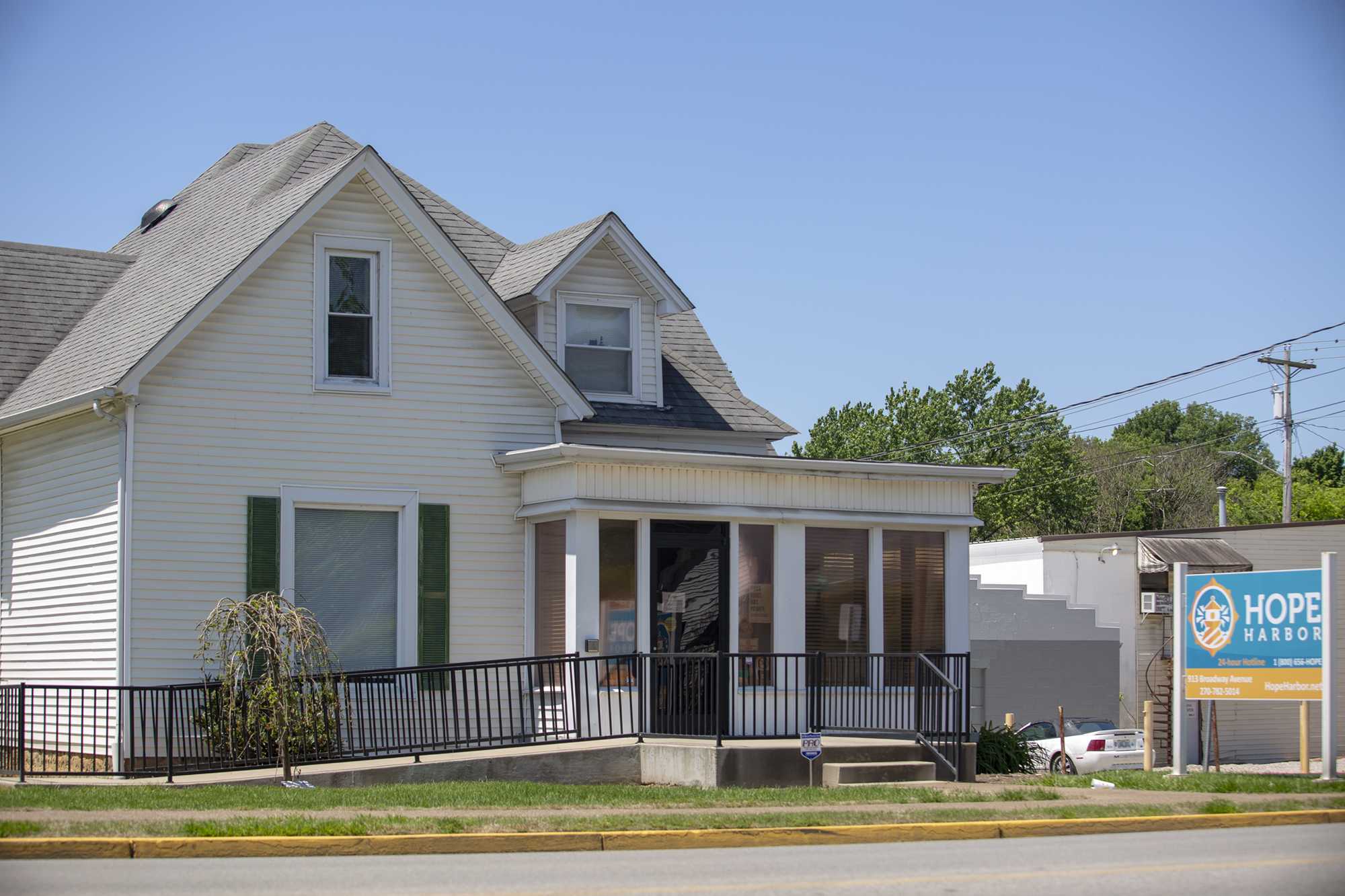Every 73 seconds, an American is sexually assaulted, yet only 1,000 perpetrators will end up in prison, according to the Rape, Abuse & Incest National Network. Currently, a huge concern throughout the nation is how to deal with COVID-19 and containing the virus. However, Alayna Milby, a crisis intervention specialist at Hope Harbor, said new regulations have many sexual assault victims staying away from hospitals in fear of contracting the coronavirus. Hope Harbor remains a safe place for survivors to reach out to during their time of need.
Bowling Green is home to Hope Harbor, a nonprofit crisis counseling center for victims of sexual assault. Hope Harbor works within Allen, Barren, Butler, Edmonson, Hart, Logan, Metcalfe, Monroe, Simpson and Warren County, according to its website. It provides many services, such as therapeutic counseling and helping survivors through their whole recovery process. This could begin at the hospital following a report or through their 24-hour crisis line. In fact, this has been the primary way that Hope Harbor has been continuing operation during quarantine.
Milby said survivors are still consistently reaching out to the crisis line seeking help and support. All staff members have been working from home, and survivors are still able to receive help. Additionally, all in-person services have shifted to video chats or over the phone sessions.
“Instead of going in person to hospitals or police stations to provide advocacy, we are going over the phone,” Milby said. “We are still working with the eight hospitals to provide care.”
For many, going to therapy is a form of refuge, and through these necessary changes, survivors are still able to receive this help in a more unconventional way. Despite receiving fewer calls than usual, Milby said they are using social media to make people aware that hospitals and Hope Harbor are still providing care for survivors.
“Many do not want to go to a hospital after an assault, but now they also do not want to be exposed to a virus,” Milby said. “For those who have gone through sexual trauma, this pandemic can be very triggering.”
Serenda LoBue is Hope Harbor’s systems advocacy specialist and often one of the first people to interact with survivors. Hope Harbor had already implemented many technological advancements that have helped the staff and survivors during this time.
“This is unprecedented in our field, but we were able to contact all of our facilities,” LoBue said. “We still want to provide the best trauma-oriented services, and sometimes all that is is seeing a face.”
All hospitals that Hope Harbor partners with have been provided with iPads so that survivors can Zoom with a counselor while still being guaranteed confidentiality, LoBue said. Teams throughout Kentucky who work with survivors are still meeting virtually throughout the month in order to ensure people are still receiving the help they need and to inform each other on any potential updates.
Aside from hospitals throughout Bowling Green and neighboring counties, Hope Harbor works closely with two primary high schools in Warren County to provide awareness and educate students on the best way to not be a bystander. Students and teachers are taken through the “Green Dot” prevention strategy regarding advocacy for those who have been through trauma and how to recognize signs of assault. LoBue said these sessions focus on behaviors and the background of what pushes good people to do bad things.
However, these sessions were unable to continue this past school year due to the COVID-19 outbreak and they were not prepared for the sudden change. LoBue said this education will still be implemented for the next school year even if in-person sessions are suspended.
“We have been planning on moving forward, but we do not know if we will be working with a virtual platform for the year,” LoBue said. “We are prepared to do that if necessary.”
Volunteers on the 24/7 crisis hotline have been providing advocacy over the phone to calling survivors. Bailey Thiry has been a volunteer for almost a year and has seen Hope Harbor transition from predominantly in-person work to remote work.
“I usually take hospital shifts once a week, and the fact that we aren’t able to go to hospitals is really frustrating,” Thiry said. “The staff is already under so much stress that us having to rely on them to do what we usually do does not help reduce that stress.”
Thiry enjoys working directly with survivors but pointed out that sometimes this does not always mean talking to them about a traumatizing event. While letting survivors know what their options are is a large part of being at the hospital, Thiry said that simply being a friend can be its own form of therapy. Thiry said she looks forward to being able to resume in-person advocacy and bringing some joy to survivors in hospitals.
She said she loves working with the survivors directly and helping them with options on moving forward, but being there to improve their day is something that keeps her going back. Chatting with survivors about simple pleasures such as their favorite weekend activities or what their passions are allow for a small sense of relief during such a traumatic time.
Sexual assault does not stop during a pandemic, and Hope Harbor is still operating. Even during this isolating age, this is a place for people to seek solace even through a Zoom call. Tele-Advocacy is being strongly encouraged during this time and plays an integral part in providing people the counseling and support until they are able to be in-person again, LoBue said. Survivors are encouraged to reach out and seek help during this trying time as there are still so many people who want to help.
“Sexual violence is very isolating,” Milby said. “On top of that, being physically isolated right now can be hard for those struggling.”
Hope Harbor’s 24 Hour Crisis Hotline is 1-800-656-HOPE (4673), and its local Bowling Green phone number is 270-846-1100.


